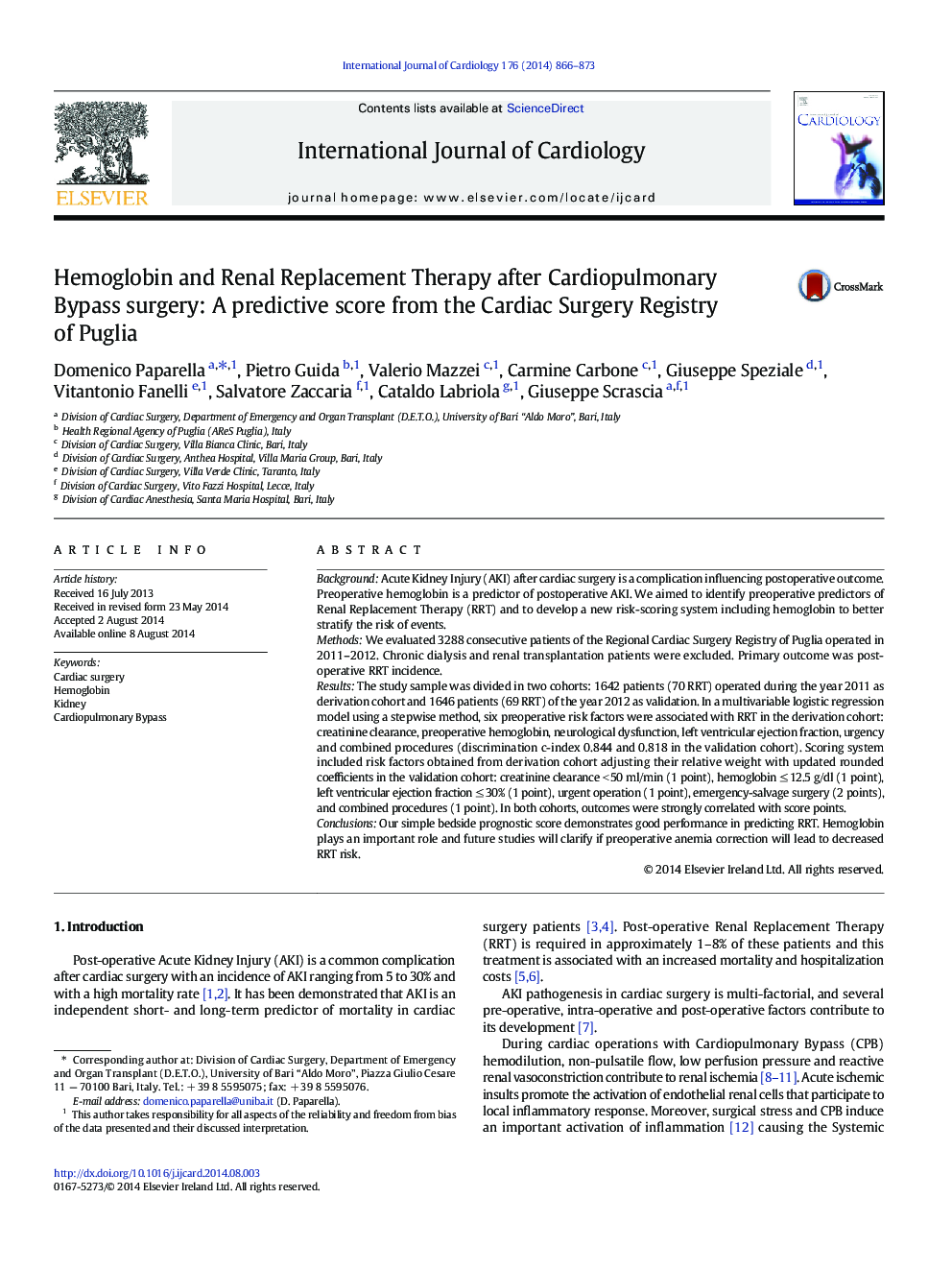| کد مقاله | کد نشریه | سال انتشار | مقاله انگلیسی | نسخه تمام متن |
|---|---|---|---|---|
| 5969331 | 1576178 | 2014 | 8 صفحه PDF | دانلود رایگان |
- Preoperative hemoglobin is a predictor of Acute Kidney Injury after cardiac surgery
- Preoperative hemoglobin helps to predict the risk of Renal Replacement Therapy
- Hemoglobin use improves the performance of our prognostic score
BackgroundAcute Kidney Injury (AKI) after cardiac surgery is a complication influencing postoperative outcome. Preoperative hemoglobin is a predictor of postoperative AKI. We aimed to identify preoperative predictors of Renal Replacement Therapy (RRT) and to develop a new risk-scoring system including hemoglobin to better stratify the risk of events.MethodsWe evaluated 3288 consecutive patients of the Regional Cardiac Surgery Registry of Puglia operated in 2011-2012. Chronic dialysis and renal transplantation patients were excluded. Primary outcome was post-operative RRT incidence.ResultsThe study sample was divided in two cohorts: 1642 patients (70 RRT) operated during the year 2011 as derivation cohort and 1646 patients (69 RRT) of the year 2012 as validation. In a multivariable logistic regression model using a stepwise method, six preoperative risk factors were associated with RRT in the derivation cohort: creatinine clearance, preoperative hemoglobin, neurological dysfunction, left ventricular ejection fraction, urgency and combined procedures (discrimination c-index 0.844 and 0.818 in the validation cohort). Scoring system included risk factors obtained from derivation cohort adjusting their relative weight with updated rounded coefficients in the validation cohort: creatinine clearance < 50 ml/min (1 point), hemoglobin â¤Â 12.5 g/dl (1 point), left ventricular ejection fraction â¤Â 30% (1 point), urgent operation (1 point), emergency-salvage surgery (2 points), and combined procedures (1 point). In both cohorts, outcomes were strongly correlated with score points.ConclusionsOur simple bedside prognostic score demonstrates good performance in predicting RRT. Hemoglobin plays an important role and future studies will clarify if preoperative anemia correction will lead to decreased RRT risk.
Journal: International Journal of Cardiology - Volume 176, Issue 3, 20 October 2014, Pages 866-873
